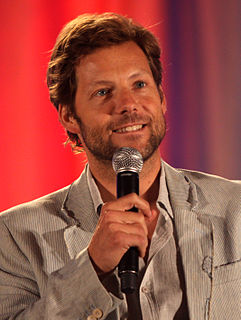A Quote by Karl Marx
Under the ideal measure of values there lurks the hard cash.
Related Quotes
What do we measure when we measure time? The gloomy answer from Hawking, one of our most implacably cheerful scientists, is that we measure entropy. We measure changes and those changes are all for the worse. We measure increasing disorder. Life is hard, says science, and constancy is the greatest of miracles.
Too often we measure everything and understand nothing. The three most important things you need to measure in a business are customer satisfaction, employee satisfaction, and cash flow. If you’re growing customer satisfaction, your global market share is sure to grow, too. Employee satisfaction gets you productivity, quality, pride, and creativity. And cash flow is the pulse—the key vital sign of a company.
Art is not and never has been subordinate to moral values. Moral values are social values; aesthetic values are human values. Morality seeks to restrain the feelings; art seeks to define them by externalizing them, by giving them significant form. Morality has only one aim - the ideal good; art has quite another aim - the objective truth... art never changes.
That is why all great men are modest: they consistently measure themselves not in comparison to other people but to the idea of perfection ever present in their minds, an ideal infinitely clearer and greater than any common people have, and they also realize how far they are from fulfilling their ideal.
The measure of a life is a measure of love and respect, So hard to earn so easily burned In the fullness of time, A garden to nurture and protect It's a measure of a life The treasure of a life is a measure of love and respect, The way you live, the gifts that you give In the fullness of time, It's the only return that you expect
It is this language of values which I hope to bring to my books. . . . I want to bring values to those who have not been valued, and I want to etch those values in terms of the ideal. Young people need ideals which identify them, and their lives, as central . . . guideposts which tell them what they can be, should be, and indeed are.









































